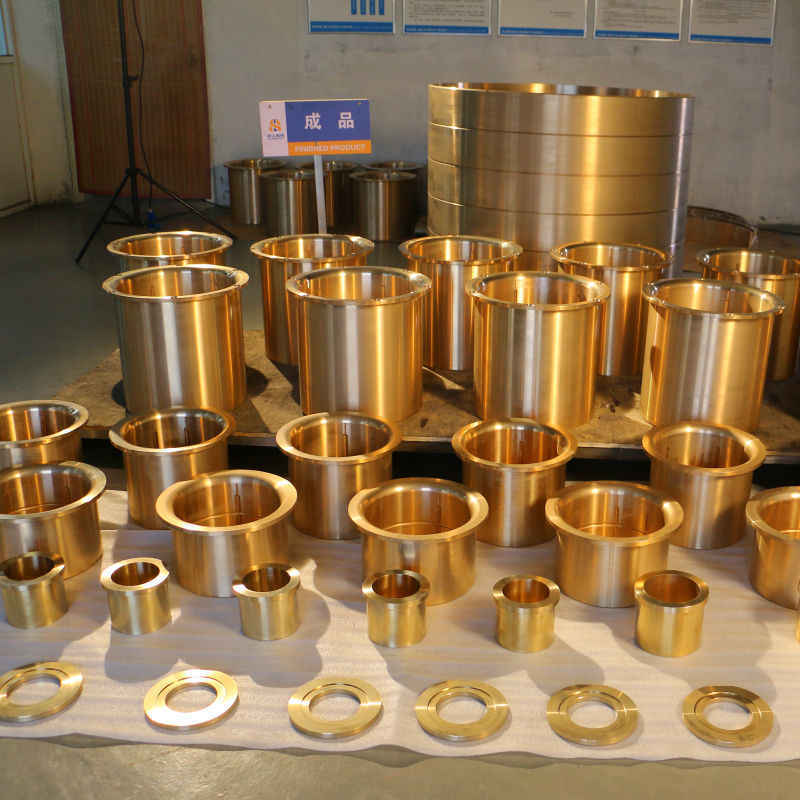 Mazhuang Village, Yuhe Town, Huixian City, Xinxiang City, Henan Province, China
Mazhuang Village, Yuhe Town, Huixian City, Xinxiang City, Henan Province, China
 Service Hotline +86 17630258963
Service Hotline +86 17630258963  Cell phone +86 17630258963
Cell phone +86 17630258963 Excellent wear resistance: copper bushing has high hardness and wear resistance, which can maintain good performance in long-term use.
Excellent thermal conductivity: copper has good thermal conductivity, which helps to dissipate heat quickly in high temperature or high-speed running occasions to protect mechanical equipment.
Strong corrosion resistance: copper bushings have good resistance to most chemicals and corrosive environments.
Good load-bearing capacity: copper bushings can withstand high loads and pressures, suitable for heavy load occasions.
Poor self-lubrication : Copper bushings are not self-lubricating by themselves and usually require additional lubrication measures such as the addition of oil or grease.
Heavier weight: Copper is denser, so compared to other materials (e.g., nylon), copper bushings are heavier and may increase the overall weight of the equipment.
Higher cost: Copper has a higher raw material cost, and the cost of manufacturing copper bushings is usually higher than materials such as nylon.

Good self-lubrication: Nylon is a material with self-lubricating properties, which reduces or eliminates the need for lubricants under certain operating conditions, reducing maintenance costs.
Lightweight: Nylon's low density makes it much lighter than copper, helping to reduce the overall weight of the equipment and making it suitable for applications with stringent weight requirements.
Strong corrosion resistance: Nylon has good resistance to many chemicals and corrosive media, suitable for a variety of harsh environments.
Low noise: nylon material has better elasticity and vibration damping properties, the use of nylon copper bushings can reduce the noise of mechanical operation.
Relatively low wear resistance: the hardness and wear resistance of nylon is not as good as copper, especially in high load and high speed applications, nylon bronze bushings may wear out faster.
Poor Thermal Conductivity: The thermal conductivity of nylon is much lower than that of copper, and in applications where rapid heat dissipation is required, nylon bronze bushings may not be as effective as pure copper bushings.
Limited load-bearing capacity: Although nylon has a certain degree of strength, under high load conditions, the nylon copper sleeve has a low load-bearing capacity and is easily deformed or damaged.
Copper bushings are suitable for high loads, high temperatures, high speeds and other occasions where high mechanical properties are required, while nylon bronze bushings are more suitable for light loads, applications requiring self-lubrication, corrosion resistance or weight reduction. The choice of material depends on the specific working environment and performance requirements.
